AzraelR
Bam-bam-bam
- Mensagens
- 4.905
- Reações
- 20.854
- Pontos
- 453
Assisti essa semana e achei o pior da série... até mais que o Phantom Menace....
Enviado dos céus de Zenithia
Bem vindo ao clube
Registre uma conta gratuita hoje para se tornar um membro! Uma vez conectado, você poderá participar neste site adicionando seus próprios tópicos e postagens, além de se conectar com outros membros por meio de sua própria caixa de entrada privada!
Assisti essa semana e achei o pior da série... até mais que o Phantom Menace....
Enviado dos céus de Zenithia
É impressionante como Star Wars morreu pra mim.
Eu tinha dito que iria instalar os jogos antigos de Star Wars no meu PC, mas a verdade é que não deu nem vontade.
Os filmes? Rá... os filmes. O desamino foi tão grande com esse último que nunca mais assisti o Despertar da Força. Não quero nem passar perto daquilo.
E olha que eu gostava do filme. Mas não há como olhar aquilo com bons olhos sabendo que os flashbacks da Rey no fim das contas não servem pra b*sta nenhuma, que o Snoke morre sem nem sabermos direito quem ele é, que a ausência do Luke não é compensada posteriormente, e por aí vai. Você entendeu o que eu quero dizer.
Em resumo, não há porque assistir um filme que levanta tantas questões e mistérios sendo que agora você sabe que praticamente nenhum deles é respondido de forma satisfatória na continuação. E mesmo deixando de lado os mistérios, ainda tem o problema de desenvolvimento dos personagens que foi péssimo.
Talvez eu assista o Rogue One. Mas ainda assim terei que fazer um grande esforço.
Já a trilogia clássica, por incrível que pareça, ainda me dá um aperto no coração ao assistir eles porque eu sei que aqueles personagens ali tiveram a continuação de suas histórias mas que lá no fundo estragaram com tudo e jogaram a oportunidade no lixo. Mark Hamill, Harrison Ford e os demais atores estão todos velhos. Logo irão parar de fazer filmes (se já não pararam). E a Carrie Fisher se foi. Foi pra isso que esperamos tanto tempo. Tivemos uma última chance de ver esses atores interpretando nossos personagens queridos nas telas do cinema e o resultado sabemos qual foi.
Impressionante como a Disney acertou tanto com a Marvel mas cagou tanto com Star Wars.
E eu continuo sem qualquer expectativa para o Episódio 9. É ZERO mesmo.
Único jeito de salvar Star Wars é construindo uma máquina do tempo e fazendo as alterações necessárias pra que essa m**** toda que foi feita seja desfeita.
Não entenda meu ponto de vista mal.O problema pra mim nem está mais só no ep 8, eu já vinha achando o canon novo chato, o ep 8 só confirmou a m****.
Não entenda meu ponto de vista mal.
Eu vejo que o primeiro novo episódio estava tentando encontrar seu caminho e achei que apesar dos erros (e achei muitos erros), bastava eles ouvirem as reclamações e o segundo episódio poderia ser tudo que queríamos.
Entao, eu dei o benefício da dúvida, estava aguardando TLJ corrigir os erros e seguir em frente.
Mas o diretor Rian Johnson simplesmente assumiu que todo e qualquer assunto que foi reclamado era hate speech e, se pediram "mais explicações", ele deu menos explicações, se pediram "mais coerência" ele deu menos, se pediram "Mais respeito aos personagens antigos" ele deu menos respeito. Ou seja, até acho que o primeiro tem montes de erros - acredite, no tópico de O Despertar da Força eu vivia reclamando de coisas que considerava erradas - mas era um tatear no escuro, que indicaria para onde a saga iiria, mas os produtores e a LucasFilm foram exatamente na contramão. O resultado, foi a m**** que deu.
Não achei o ep 7 ruim, não é "uau, que put* filme" tbm, mas não foi um começo tão ruim, dava pra seguir de lá. O problema foi acontecendo depois, no que universo SW foi se tornando. Nova República sem desafio nenhum, sem ordem jedi, Leia e Han separados e sendo pais de m****, etc... Foi sendo algo sem graça, aí vem Rebels tbm e vira uma série bem meia boca, que só tinha graça quando envolvia coisas de Clone Wars, aí trazem o Thrawn de volta pro canon, jogam ele em Rebels e ele é um completo imbecil na série, vai juntando isso com mais "meh, que troço sem graça" do novo universo expandido, aí joga o ep 8, e já era. Eu tbm tinha alguns problemas com o ep 7, mas achei que seriam resolvidos com o ep 8... foram é piorados huahauhauhauhauhuah
Ah sim, saiu agora a pouco um trailer, talvez alguém lá dentro tenha sentido o golpe depois do ep 8 e do Solo, Clone Wars vai voltar.
Se não seguir o caminho boçal de Rebels e seguir o que tinha sido planejado originalmente antes do cancelamento, quem sabe sai algo decente.
Faço minhas as suas palavras.
Vim aqui com esse trailer no link, não achei que alguém ia ser mais rápido por mais de 1 hora.
Se for algo sério, pode sair algo bem legal. Mas será que vai ser?
Até acho que a Disney vai dar um jeito de fazer algo bom pra mostrar que ainda há salvação para o universo (não duvide até que algo dessa série vá aparecer nos filmes, até mesmo algo que possa nos levar a Snoke ou Rey). Mas não sei se ainda tem gente capaz lá dentro.
Pra você @Bloodstained : https://www.cbr.com/james-gunn-star-wars-trolls-therapy/
James Gunn Recommends Star Wars Trolls ‘Go to Therapy’
AFTER ATTACKING CONSERVATIVES, DISNEY FILMMAKER’S TWEETS REVEAL RACISM, HOMOPHOBIA AND ASSAULT AGAINST CHILDRENSei lá, é meio off-topic, mas parece que James Gunn quer mesmo é ficar em evidência.
Alguma coisa está acontecendo e ele quer o nome dele sendo lembrado.












AFTER ATTACKING CONSERVATIVES, DISNEY FILMMAKER’S TWEETS REVEAL RACISM, HOMOPHOBIA AND ASSAULT AGAINST CHILDREN
Filmmaker James Gunn came to the defense of director Mark Duplass on Wednesday after Duplass committed the sin of endorsing conservative commentator Ben Shapiro and calling him a “genuine person,” but a Daily Caller News Foundation search of his Twitter account has revealed that Gunn might need some backup of his own.
In a now-deleted tweet, Duplass advised his followers to pay attention to Shapiro on Twitter if they are at all interested in “crossing the aisle,” but after receiving extreme backlash and issuing an apology, Gunn defended his fellow filmmaker while still slamming Shapiro.
“Maybe you disagree with Mark Duplass, which is completely fair (personally I think even Ben Shapiro’s mother should unfollow him). But that doesn’t make Duplass’ point-of-view evil,” Gunn tweeted. “There are a lot of traitors & racists in the country today. Perhaps save the outrage for them.”
Gunn accused President Donald Trump of being “an operative for a foreign national,” criticizing his zero-tolerance immigration policy, and blamed Republicans for future potential Russian election meddling. He ended the Twitter rant by calling Shapiro an “asshole.”
TheDCNF search of his Twitter account, however, revealed Gunn’s anger doesn’t just end with Trump or Shapiro. Since 2008, Gunn has left a trail of racist, anti-semitic, homophobic and rape-related remarks on the social media platform. Most disturbingly, one tweet seems to suggest that Gunn witnessed an act of sexual assault between a child actor and a monkey.
On his personal website, Gunn describes the incident with the child and monkey in detail, saying the story makes him “extremely happy.”









“The trainer was too late. It only took the monkey a few seconds to bring himself to completion. A string of semen shot out of the mini-monkey-wood and splash-landed DIRECTLY ON THE KID.”
Screaming and freaking out commenced.
“I know it might be sick, but that story makes me extremely happy,” Gunn wrote.
Gunn’s career has spanned two decades, writing hit films as the 2004 remake of “Dawn of the Dead” as well as writing and directing both “Guardians of the Galaxy Vol. 1” in 2014 and its sequel “Guardians of the Galaxy Vol. 2” in 2017 for Disney. He also has an executive producer credit for “Avengers: Infinity War.”
Fonte
==============================================================================
==============================================================================
Gunn, siga seu próprio conselho e VÁ FAZER TERAPIA.
É sempre a mesma história: todo puto que acha no direito de bancar a polícia moral no Twitter tem pelo menos um grande esqueleto escondido no armário... Outro hipócrita do c***lho desmascarado e nada mais. Justiça poética é uma coisa linda de se ver, não é mesmo?
AFTER ATTACKING CONSERVATIVES, DISNEY FILMMAKER’S TWEETS REVEAL RACISM, HOMOPHOBIA AND ASSAULT AGAINST CHILDREN
Filmmaker James Gunn came to the defense of director Mark Duplass on Wednesday after Duplass committed the sin of endorsing conservative commentator Ben Shapiro and calling him a “genuine person,” but a Daily Caller News Foundation search of his Twitter account has revealed that Gunn might need some backup of his own.
In a now-deleted tweet, Duplass advised his followers to pay attention to Shapiro on Twitter if they are at all interested in “crossing the aisle,” but after receiving extreme backlash and issuing an apology, Gunn defended his fellow filmmaker while still slamming Shapiro.
“Maybe you disagree with Mark Duplass, which is completely fair (personally I think even Ben Shapiro’s mother should unfollow him). But that doesn’t make Duplass’ point-of-view evil,” Gunn tweeted. “There are a lot of traitors & racists in the country today. Perhaps save the outrage for them.”
Gunn accused President Donald Trump of being “an operative for a foreign national,” criticizing his zero-tolerance immigration policy, and blamed Republicans for future potential Russian election meddling. He ended the Twitter rant by calling Shapiro an “asshole.”
TheDCNF search of his Twitter account, however, revealed Gunn’s anger doesn’t just end with Trump or Shapiro. Since 2008, Gunn has left a trail of racist, anti-semitic, homophobic and rape-related remarks on the social media platform. Most disturbingly, one tweet seems to suggest that Gunn witnessed an act of sexual assault between a child actor and a monkey.
On his personal website, Gunn describes the incident with the child and monkey in detail, saying the story makes him “extremely happy.”









“The trainer was too late. It only took the monkey a few seconds to bring himself to completion. A string of semen shot out of the mini-monkey-wood and splash-landed DIRECTLY ON THE KID.”
Screaming and freaking out commenced.
“I know it might be sick, but that story makes me extremely happy,” Gunn wrote.
Gunn’s career has spanned two decades, writing hit films as the 2004 remake of “Dawn of the Dead” as well as writing and directing both “Guardians of the Galaxy Vol. 1” in 2014 and its sequel “Guardians of the Galaxy Vol. 2” in 2017 for Disney. He also has an executive producer credit for “Avengers: Infinity War.”
Fonte
==============================================================================
==============================================================================
Gunn, siga seu próprio conselho e VÁ FAZER TERAPIA.
É sempre a mesma história: todo puto que acha no direito de bancar a polícia moral no Twitter tem pelo menos um grande esqueleto escondido no armário... Outro hipócrita do c***lho desmascarado e nada mais. Justiça poética é uma coisa linda de se ver, não é mesmo?
James Gunn Fired From ‘Guardians of the Galaxy Vol. 3’Não pude ver antes, putz...
SJW purinho, ataca todo mundo que pensa diferente, mas age exatamente igual ele critica. Fanbase de The Last Jedi mostrando pra que serve.
E a Disney ainda tenta investir nesse povo.


James Gunn Fired From ‘Guardians of the Galaxy Vol. 3’

James Gunn has been fired as the director of “Guardians of the Galaxy Vol. 3” after a series of offensive tweets were unearthed that made light of such controversial topics as pedophelia and rape. Disney, the studio behind the comic book franchise, made the announcement in the midst of Comic-Con, the geek convention where Gunn is beloved for his horror work in films such as “Slither” and for the irreverent take he applied to the superhero genre in the first Guardians and its sequel.
“The offensive attitudes and statements discovered on James’ Twitter feed are indefensible and inconsistent with our studio’s values, and we have severed our business relationship with him,” said Alan Horn, the studio’s chairman.
More to come…
Fonte
=====================================================================================
Justiça poética nunca deixa de ser algo lindo de se ver.
Você percebe que essa galera não consegue separar quem eles fingem ser de quem eles são mesmo.Sabe a coisa mais irônica disso? Ele defendia que gente pagasse por coisas que disseram no passado.

Fica uma dica: Não venha cagar regras idiotas nos outros e esperar que não as apliquem a você, no final você colhe o que você planta.

Sempre vale a pena pensar que RJ deve ter bloqueado e apagado muita coisa, sem falar que 7% dos comentários sendo negativos ao filme no tuiter dele não quer dizer nada.
Eu sou um dos que mais crítica o filme, nunca publiquei nada lá. E tbm não publicaria se ele fosse brasileiro.
Muita gente não vai se importar de mostrar pra ele sua desaprovação, até porque ele já mostrou que não entende nenhuma crítica.
Qual a porcentagem de fãs que postaram aqui na OS e nunca partilharam nada contra o filme no tuiter?
Esse PhD tá mais pra um fanfarrão, ou só é burro mesmo.
Exato.Se fosse só isso eles não estariam repercutindo, ignoravam e pronto.

O efeito Gunn acaba de atingir Ruin Johnson. De uma hora para outra, o cara deletou aproximadamente 95% dos tweets de sua conta. Como é que dizem por aí mesmo? ........... Ah, é! Quem não deve, não teme.
Se droparem mesmo o capítulo 9, todo esse damage control ai terá valido ZERO...é tudo culpa dos fãns, mas vamos cancelar a programação pq ficou uma m**** mesmo.
E pior que pra mim nem tem a ver com a "lacração'.
Pode ter protagonista mulher, pode ter Jedi mulher bem forte, guerreira, pode até ser lésbica... (só não coloca trans pq ai fica demais kkk), pode fazer o que for desde que o roteiro seja ótimo e tenha coerência com os filmes anteriores.
Desde que fique explicado como chegaram lá e pra onde vão depois.
Desde que não apague a história anterior, mas escreva uma nova enaltecendo os personagens anteriores.
E tudo isso não é difícil. Mas parece que adoram seguir por outro caminho..
nao dá pra consertar o estrago.
tipo , até a prequel sofre desse mal. todo aquele plot com jar jar q se nao me engano o lucas confirmou nas entrelinhas , ficou pra escanteio e criaram um conde dracula pra possar como antagonista até o sidious sair das sombras.
mas puttz , não ligo muito pro super poderes da rey. mas puttz o descaso com o pessoal da velha guarda, o desmerecimento com luke. ah kra não dá.
q botasse o luke apatico, tipo , não ligo pra nada salve meu pai, salve a minha irma e ja salvei a galaxia uma vez. mas puttz um luke covarde e chorao.
não sei como o episodio 9 pode agradar os fãs.




Olha, até pediram desculpas envergonhadas por tudo que fizeram.The Clone Wars Revival Shows Disney Has Lost Faith in Kathleen Kennedy
Dave Finoli is the face of Star Wars. In fact, he has been for quite some time. The Clone Wars has some of the best stories in the entire franchise. The writing staff was diverse too, full of both men and women, including one of Lucas’ daughters. That puts a knife in Kennedy’s narrative regarding female involvement in the franchise, especially since Clone Wars is possibly better than both the OT and PT with regards to storytelling. As we have reported earlier, Disney is on the verge of ditching Kennedy. She’s on her last legs and the writing is all but on the door. After the massive failure of Solo and the extreme fan division of The Last Jedi (this is not due to alt-right trolls, racists, bigots, or sexists — people on all sides of the aisle feel this way, and I know many who can testify to this fact — this is just propaganda by Lucasfilm and the shill media.)
The film was atrocious.
It’s sad that The Clone Wars revival has to be overshadowed by such an unfortunate turn of events, but that’s the dire situation Disney is in right now. They have lost all confidence in Kennedy’s vision of Star Wars. Rian Johnson’s Trilogy is all but dead. Kennedy said that she would carry on the tradition of Lucas’ legacy, but she’s crapped all over it. Han Solo, Luke Skywalker…two of the most beloved characters in the Original Trilogy, destroyed in one fell swoop. This is why I’m glad an Obi-Wan film is not in production, as I don’t want Kennedy to meddle with yet another classic character.
We’re Back!

The Best Female Character in Star Wars
Filoni is all but Lucas’ predecessor. Lucas was involved extensively in the conception of The Clone Wars and its’ episodes, who he developed with Filoni. If not for the fact that he has no experience running a film studio, he’d have Kennedy’s job on the spot. Dave Filoni is our only hope. The Clone Wars revival shows that Disney is listening to fan outrage. They’re moving backward instead of forward. All Star Wars fans loved The Clone Wars. Instead of getting something set in the Sequel Trilogy era, Disney’s creation, they are bringing back the greatest animated television series of all-time which they canceled years ago. This is a huge slap in the face to both Kennedy’s vision and legacy.

Most of all, it shows a lack of confidence in the current direction of Star Wars. Sometimes the only way to know how to move forward is to go back and reflect on the past. This is what Disney is doing. Kathleen Kennedy was clearly a mistake. She’s ruined Lucas’ legacy and ruined the Sequel Trilogy, throwing Lucas’ ideas out the window (which were NOT about midichlorians by the way; more misinformation propaganda by the shill media.)
The Clone Wars revival will show us what Star Wars is about, once again, and it will spark a revolution within Lucasfilm.
Fonte
Olha, até pediram desculpas envergonhadas por tudo que fizeram.
De repente a Disney ainda me ganha, hein...
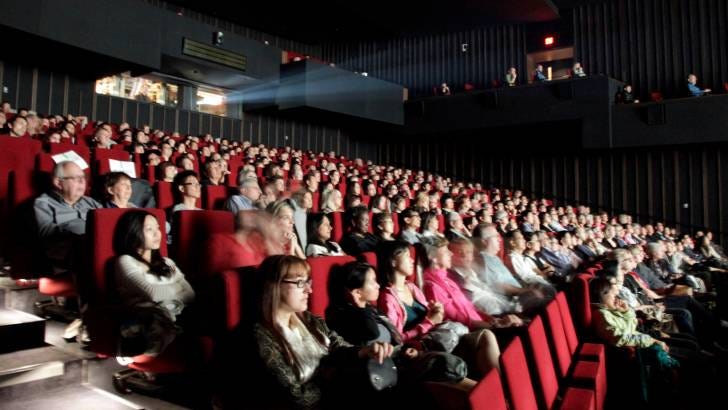
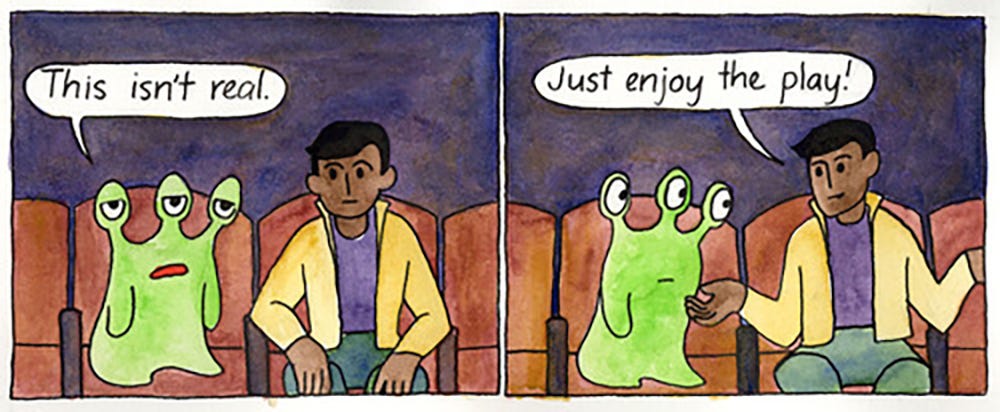
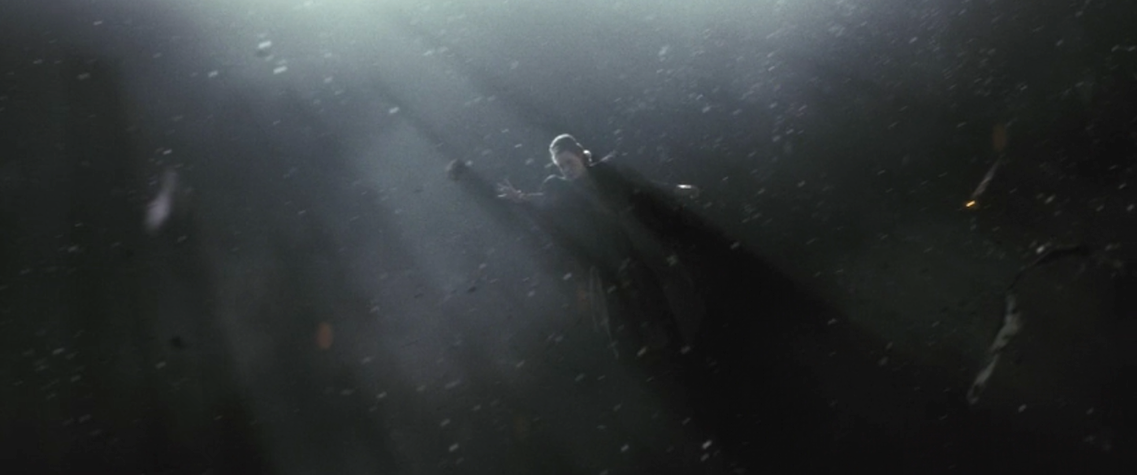
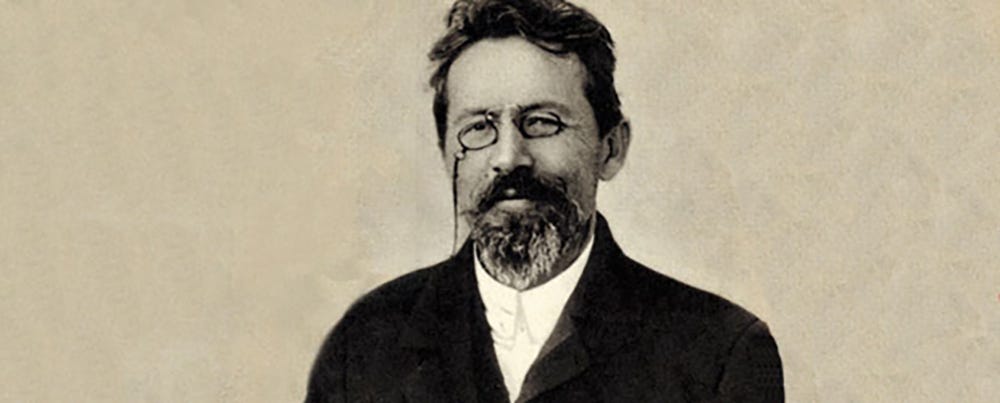
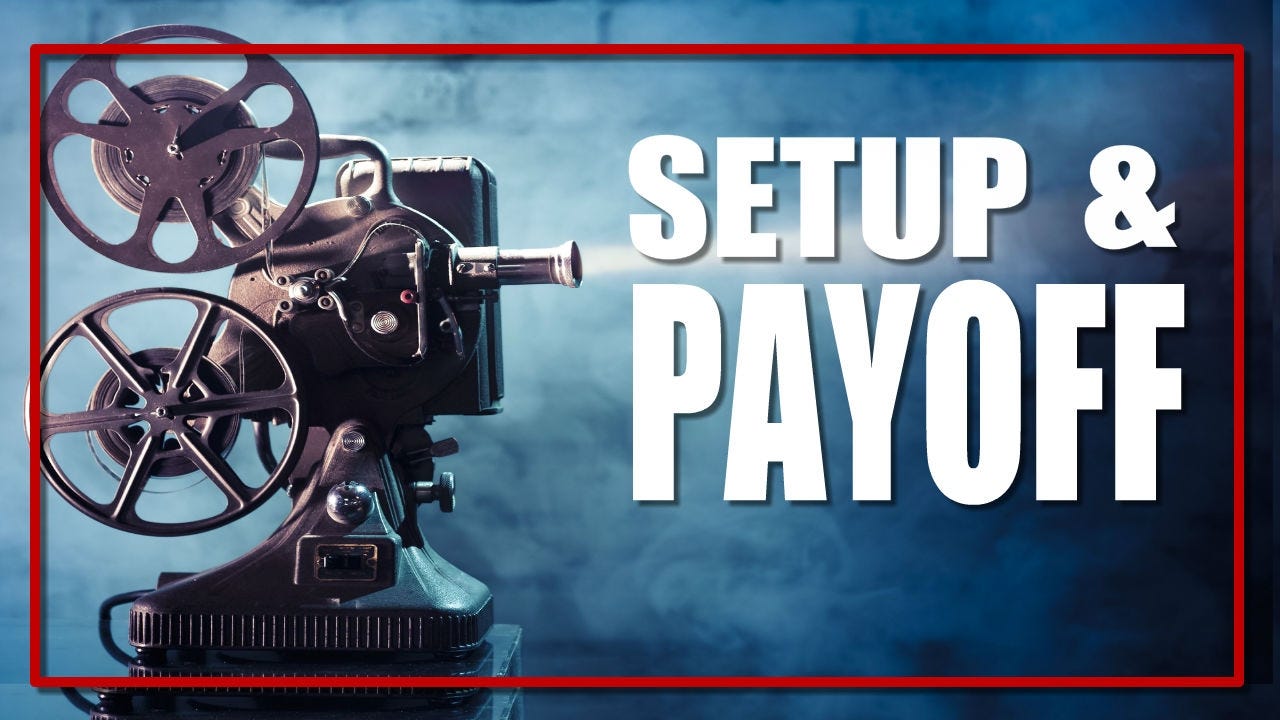
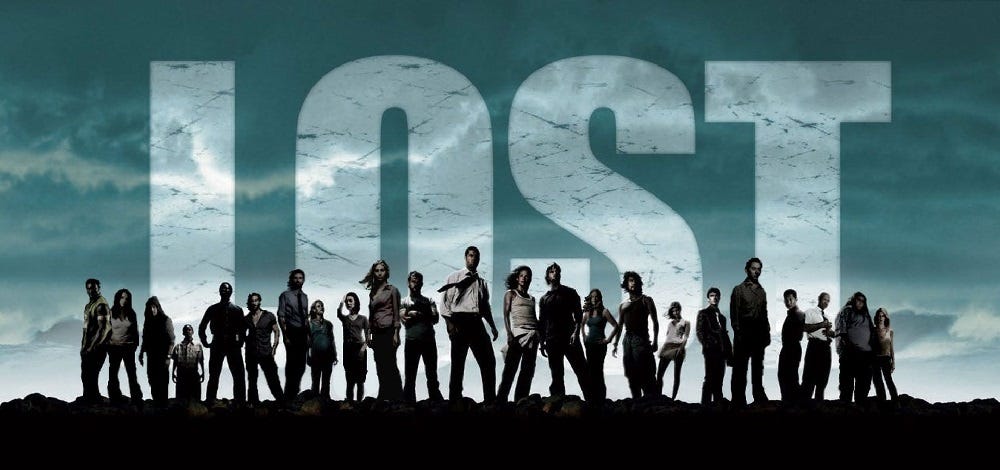
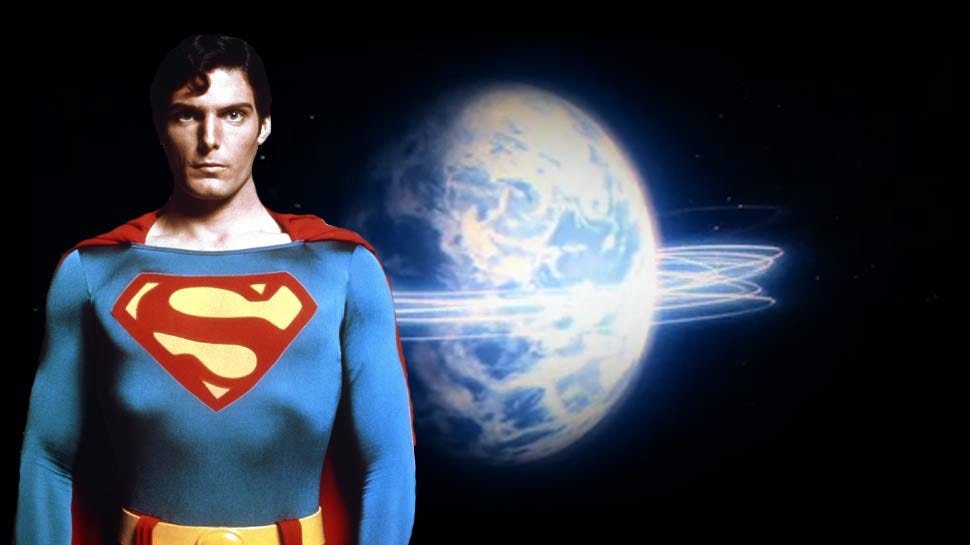
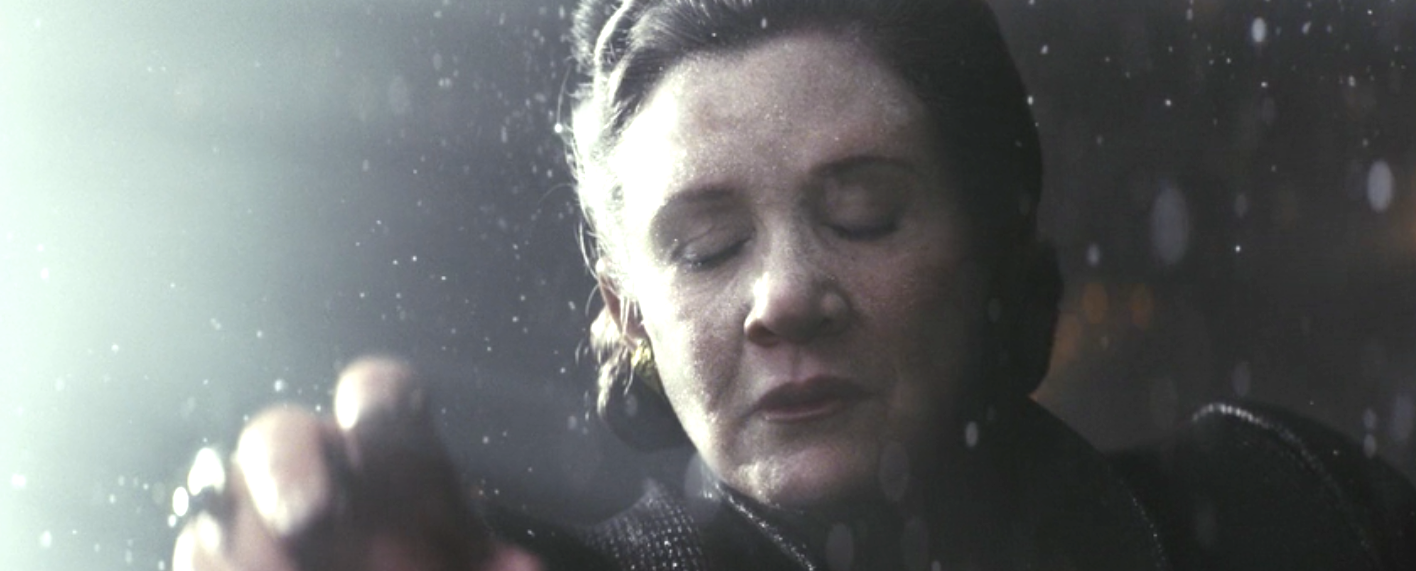
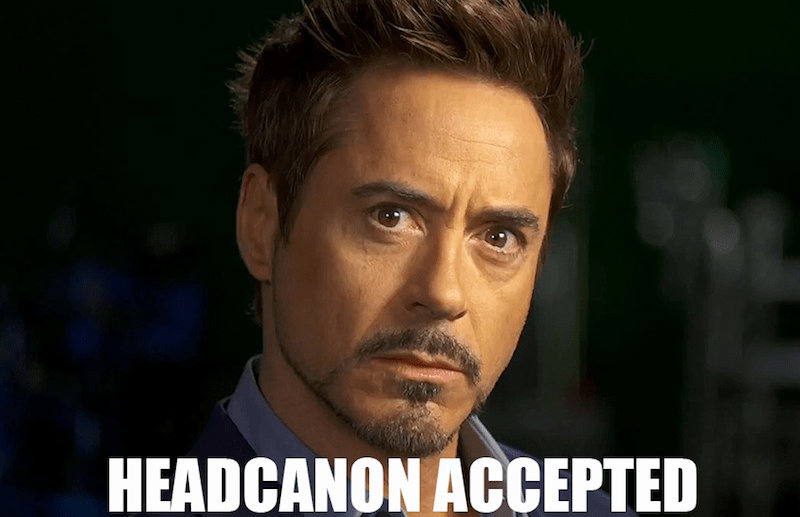
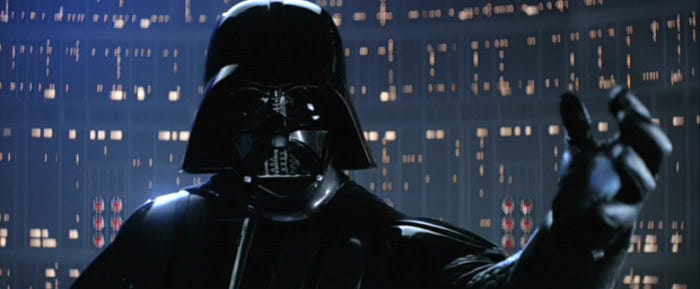
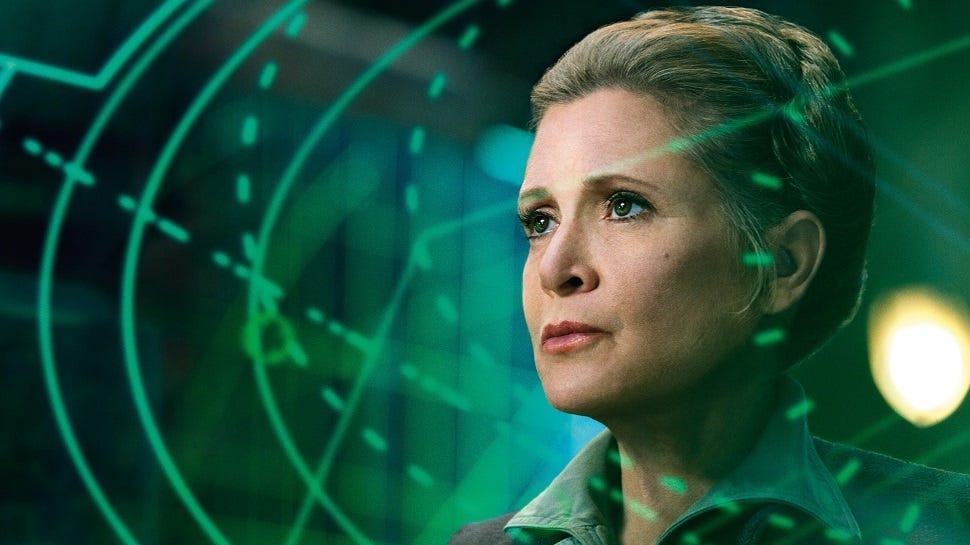
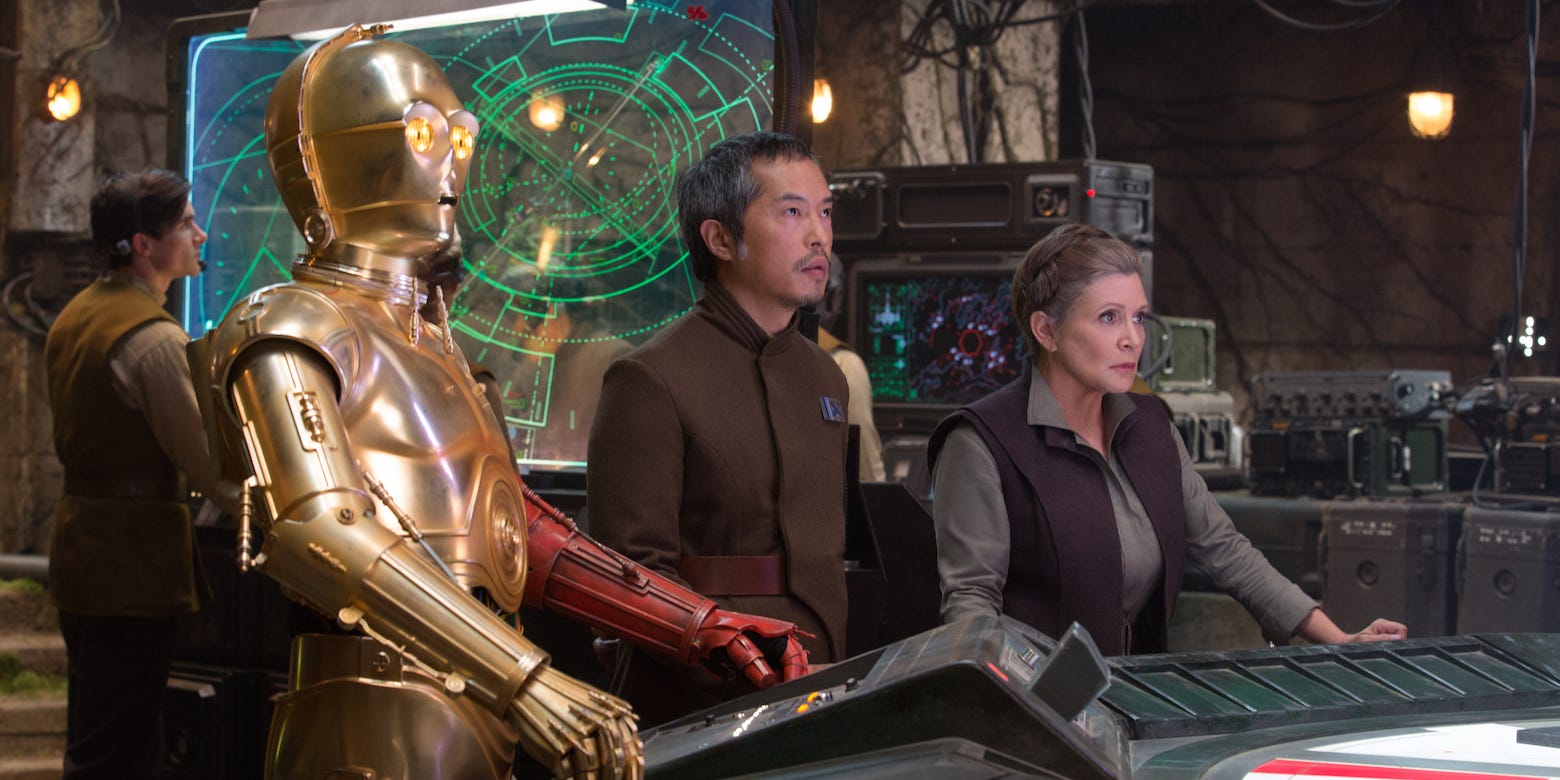
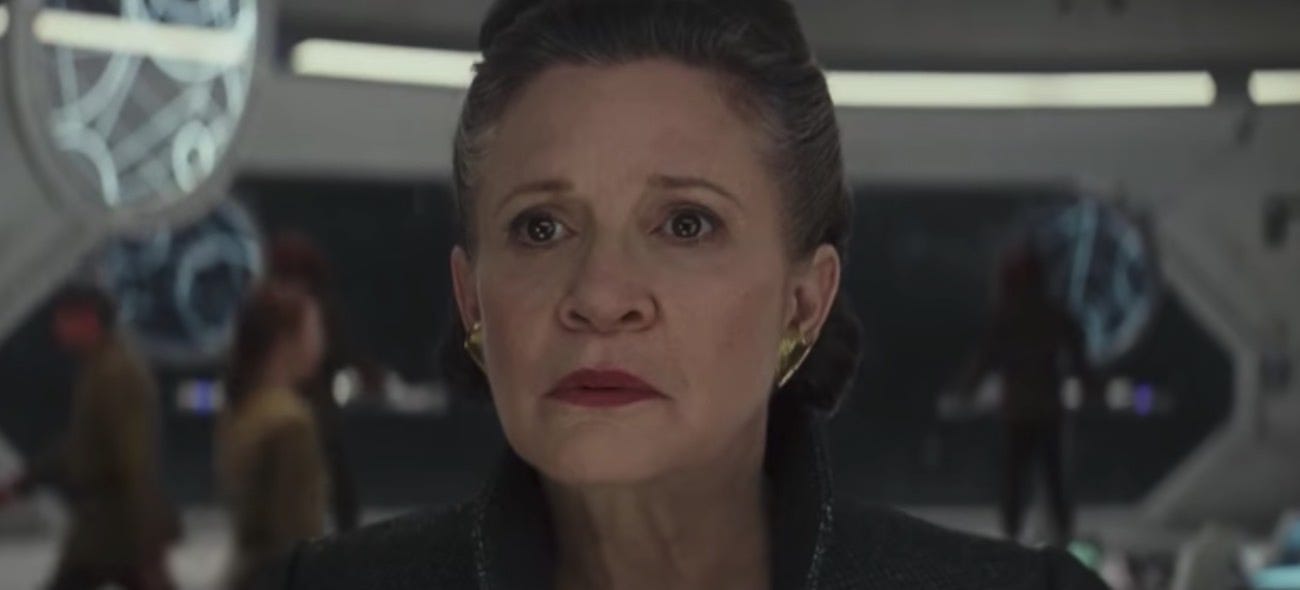
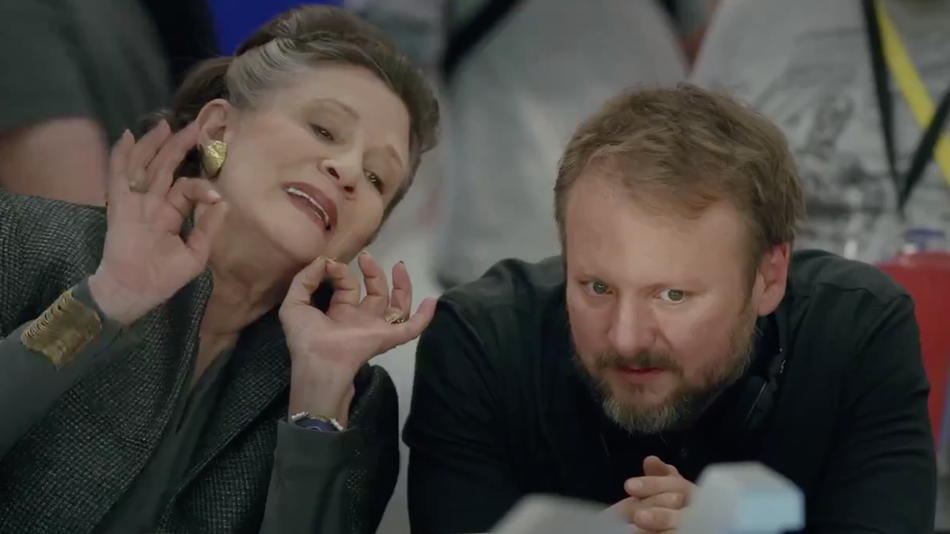
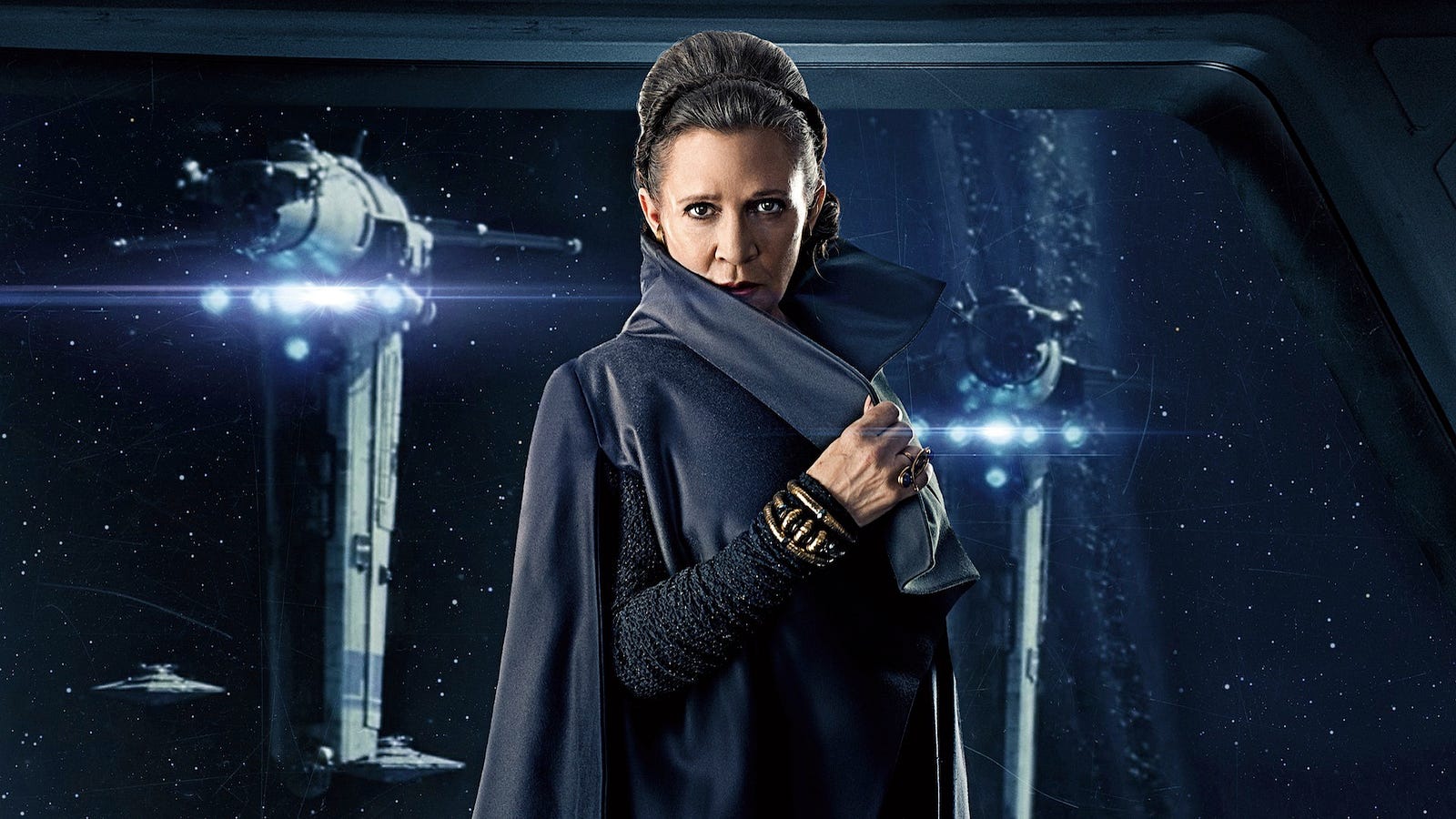
Rapaz, que texto excelente! Li tudo aqui, e parando pra pensar, TLJ tem outra cena que detona o Princípio de Chekhov: Holdo entrando no hiperespaço pra destruir a nave Imperial. Em nenhum momento da Saga isso foi estabelecido, mas tá lá, outro Deus Ex machina safado empregado pelo Ruin Johnson.How The Last Jedi Alienated Its Audience [Storycraft]
Greetings fellow geeks, nerds, and Star Wars fans! My name is Matthew Kadish — author, evil genius, and snobby storyteller extraordinaire, here today to bring you the first in a series of essays designed to deconstruct and analyze different forms of entertainment from a storytelling perspective.
My Storycraft series is meant to look at movies, TV shows, and novels from the perspective of a storyteller in an attempt to figure out how and why audiences react the way they do to these forms of entertainment. In this installment, we’ll be focusing on The Last Jedi, which is quite a controversial movie considering the passion of both its detractors and defenders.
But before we get down to the analysis, I just want to make it clear what this essay is NOT about. Storycraft is NOT about:
- Hating on a particular movie, TV show, or book.
- Attacking the artist who produced that movie, TV show, or book.
- Attacking anyone who liked said movie, TV show, or book.
- Convincing anyone NOT to like a specific movie, TV show, or book.
My goal with Storycraft is simply to take an analytical look at a piece of entertainment and break it down based on established and proven theoriesabout how to properly tell a story, for the purposes of educating those who wish to learn the art of storytelling. In essence, Storycraft is about the concepts behind telling stories effectively — nothing else. This is not meant to be a review, simply an in-depth narrative analysis based in professional standards of storytelling.
Of course, you’re free to disagree with my analysis of different works. I don’t claim to be an authority on anything. But if you feel I’m wrong about something, feel free to debate me about it in the comments or over on Twitter, so long as you remain respectful. I always welcome feedback!
Okay, now that the disclaimer is out of the way, let’s get to the nitty-gritty of what this analysis of Star Wars: The Last Jedi is about…
Losing Your Audience

A Storyteller must always keep their audience in mind.
When I saw The Last Jedi in the theater the night of its release in December of 2017, I went in very excited and expecting to like it. Not only am I a huge Star Wars fan, but I also liked writer/director Rian Johnson, mostly because I enjoyed his previous two movies and the episodes of Breaking Bad he’d directed.
And as far as I’m concerned, despite a few misgivings about the early parts of the movie, I was actually enjoying The Last Jedi for roughly the first act of the film. But then something happened that changed the way I experienced the story, and then served to amplify every last flaw the movie had to the point where I walked out of the theater actually upset over what I’d seen.
That change occurred approximately 31 minutes into the film. And I’m sure everyone knows the scene that I’m talking about.
Yes, that’s right. The “Space Leia” scene.
It was the scene where the character of Leia Organa-Solo, having been blown out into space by an attack on her ship from Kylo Ren, floats in the void of space, her skin pale and frosted with ice. Then, she opens her eyes and flies back toward the Resistance capitol ship The Raddus, back into the destroyed bridge, and into the waiting hands of her allies who immediately rush her to the medical bay.
For reference, here is the scene in question:
I can remember sitting in the theater watching this moment and hearing people around me either express confusion over what happened or laugh at the scene claiming how “stupid” or “ridiculous” it was. My own personal reaction was actually a combination of the two. I found it humorous that such a scene happened the way it happened, but I was also incredibly confused as to why writer/director Rian Johnson presented that scene in the way he did — a way which pulled the audience out of the movie.
And from that point on, it felt as though half the audience in the theater stopped enjoying the film. I saw people make more jokes at the screen. More people pull out their phones to play on them instead of paying attention to the film. More people whispering to one another. Speaking for myself, I was so taken out of the experience of the film, that every single last flaw of the movie became so much more pronounced that I couldn’t ignore them and thus, my enjoyment of the movie was completely ruined.
Now, this is not to say that everyone felt the way I did about this scene. However, from a storytelling point of view, doing something that effectively alienates half your audience 1/5th of the way through your tale is NOT proper storycraft. And many people who like The Last Jedi and defend it against its detractors will tell you they did not like this scene, even though they’re willing to forgive its existence.
One must always remember that the purpose of any story is to entertain and engage your audience. Doing anything that prevents or ruins those things is bad storycraft and should try to be avoided at all cost.
So what is it about the “Space Leia” scene that is bad storycraft? And why is it considered to be bad? Well, first, in order to properly argue this point, let’s talk about the concept of “Suspension of Disbelief.”
Suspension of Disbelief, And Why It’s Important To Maintain

Suspension of Disbelief is critical for audiences to enjoy fiction.
The term “Suspension of Disbelief” has been defined as a willingness to suspend one’s critical faculties and believe something surreal.
In other words: Audiences are willing to sacrifice realism and logic for the sake of enjoyment.
The term was coined in 1817 by the poet and aesthetic philosopher Samuel Taylor Coleridge, who suggested that if a writer could infuse a “human interest and a semblance of truth” into a fantastic tale, the reader would suspend judgement concerning the implausibility of the narrative.
All stories rely on this concept of suspension of disbelief in some way, shape, or form. And it is vital to maintain for the audience so that any flaws a piece of entertainment may have can be forgiven by them.
The most common example of this are editing continuity errors. You know, this is where certain actions from the actors do not match from shot to shot within a scene. As audiences, we can see that a character’s actions are not consistent between edits within a scene, but because we as an audience know that we are watching a movie and movies are comprised of multiple shots, so long as the scene is good or interesting in regards to the story, we’re willing to overlook these errors for the sake of suspending our disbelief so that we may continue to enjoy the story.
To better understand what I’m talking about here, check out this video which illustrates continuity errors in film, and why they don’t matter so long as suspension of disbelief is maintained:
A more pertinent example of this concept of an audience’s suspension of disbelief is how gravity in outer space is handled in the Star Wars films. In the original trilogy, all characters experience gravity while travelling through space. This is never explained at any point — nowhere in the original films did anyone talk about an “artificial gravity” generator or anything to explain why the characters were not weightless while flying around in spacecraft. They just walked around as though gravity was an actual presence in the void of outer space.
But as an audience, we’re aware that these movies were shot on Earth, where gravity is certainly a thing, and at the time these movies were made the technology didn’t exist to give the characters a realistic version of weightlessness. More than that, being scientifically accurate concerning this issue wouldn’t have added anything to the story. And because the story of the original trilogy was so entertaining, we as an audience were willing to forgive the lack of realism through our willing suspension of disbelief.
This is important to understand, because once an audience begins to refuse to suspend their disbelief, they actually start to actively reject the story they are being told.
When this happens, audiences begin to scrutinize and criticize the narrative far more than they would if they were suspending their disbelief. They begin to obsess over every flaw and inaccuracy. They begin to nitpick the movie to death. They effectively “check out” from the story and stop enjoying themselves.
In short: When suspension of disbelief is lost, audience enjoyment is ruined.
This can best be described in the context of what is called “The Salesman’s Creed.” This is a concept in business which states the following:
“People love to buy, but they hate being sold to.”
What this means is that a salesman’s customers love the act of buying and acquiring new things that can enhance their lives. However, if a customer feels they are being manipulated into making that buying decision, they will ultimately reject the product, even if the product is good or beneficial for them.
This all stems from the notion that we, as people, do not like to feel like we are being “tricked” or “lied to.” The moment we feel as though we are, our defenses go up and we pull away.
When a storyteller destroys an audience’s suspension of disbelief, that’s exactly what occurs. The story an audience is watching suddenly becomes laid bare as the curtain is pulled back, immersion is ruined, and we become aware that we are watching a movie. We essentially stop seeing what we are watching as something to effortlessly experience and see it as a form of manipulation, or worse, an insult to our intelligence, which we then reject.

The moment The Last Jedi lost its audience…
In the context of The Last Jedi, the “Space Leia” scene is the one scene that almost across the board broke its audience’s suspension of disbelief. Up until that very point, audiences could be expected to forgive the movie its flaws and maintain their suspension of disbelief for the purpose of entertainment. But the second that scene played out, it made audiences remove themselvesfrom the experience of enjoying a story and made them aware they were simply watching an extremely flawed movie.
So how did this happen? How did the “Space Leia” scene break this extremely important concept that is vital for a storyteller to maintain?
Well, the answer to that lies in what is called the “Chekhov Principle.”
What Is The Chekhov Principle?

Anton Pavlovich Chekhov developed the philosophy behind efficient storytelling.
For those unfamiliar with the “Chekhov Principle,” it is simply a writing rule that states that every element in a story must be necessary to that story’s narrative, and elements that are not necessary should be removed. Essentially, it is a philosophy that encourages efficient storytelling.
This concept comes from Anton Pavlovich Chekhov, who was a 19th century Russian playwright and short-story writer. Chekhov is considered to be among the greatest writers of short fiction in history. In Sergei Shchukin’s 1911 book entitled Memoirs, he quotes Chekhov as saying the following:
“If you say in the first chapter that there is a rifle hanging on a wall, in the second or third chapter it absolutely must go off. If it’s not going to be fired, it shouldn’t be hanging there.”
From this example came the concept known to be “Chekhov’s Gun,” which is the basis for the Chekhov Principle. The philosophy behind Anton Chekhov’s writing was one of efficiency, due to the fact that he was a short story writer and did not have the ability to pad out his tales with excessive wording. He had to write to meet a certain word count that he could not go over if he wanted his stories to be published. Thus, he developed this concept of only including things that are vital to the story.
But within the context of the “Chekhov’s Gun” principle, one can look at it as more than simply a philosophy on writing. One can actually look at it as a specific and definable storytelling technique. And that technique is: Set Up and Pay Off.
Set Up And Pay Off

Before paying off a story element, one must first set it up.
Chekhov’s Gun gives storytellers the notion that before an element of a story can be utilized, it must first be established to the audience. Failing to do so will break the established story logic and cause audiences to stop their suspension of disbelief. In essence, before you deliver a “pay off,” you must first “set up” that story element that is to pay off later in the narrative.
This is a FUNDAMENTAL concept in all forms of storycraft. And there are two reasons why…
The first reason is that if you set up story elements that have no pay off, you essentially bog down the narrative with excess baggage, to the point where audiences begin to wonder why they should care about any of the elements within the story they are experiencing.

LOST: All set up & no pay-off.
A good example of this is any movie or TV show that JJ Abrams makes that utilizes his “mystery box” concept, the biggest offender of which is the TV show LOST. In that show, the writers set-up numerous mysteries concerning the mystical island the plane crash survivors of the series find themselves on. The only problem is that a great number of the island’s biggest mysteries are never given proper solutions, which served to make audiences turn on the show in its final season. LOST is a great example of a narrative with lots of set-up and no pay off.
On the reverse side of that are the narratives that pay off story elements that were never properly set up. This is what is called a “Deus Ex Machina,” which is a plot device whereby a seemingly unsolvable problem in a story is suddenly and abruptly resolved by an unexpected and seemingly unlikely occurrence, typically so much so that its inclusion appears artificial or unrealistic.

Superman: The quintessential Deus Ex Machina
An example of this type of pay-off with no set up is in the 1978 Superman film. There, after Lois Lane is killed in an accident, Superman flies around the world so fast that he reverses time in order to save the woman he loves. This is one of the most famous Deus Ex Machinas in cinema history because this ability not only wasn’t ever properly set up, it dramatically affects the entire outcome of the movie, essentially negating everything that came before it. It also creates the story logic problem of: If Superman can reverse time whenever he wants, why doesn’t he always do that if he makes a mistake? This is the danger of a Deus Ex Machina. It creates logic flaws that audiences can’t ignore and negatively effects the story.
Proper storytelling technique requires that if an element is going to have a dramatic effect on the narrative of a story, then it should be clearly set upbefore being satisfactorily paid off. To simply do one without doing the other will harm an audience’s enjoyment of a film.
Space Leia and Chekhov’s Skill

Were Leia’s Force powers properly set up?
The real sin committed in The Last Jedi in regards to the “Space Leia” scene is that failed to properly set up what was going to occur in that particular scene.
Just like how Chekhov’s Gun is a principle for setting up important story elements, this concept has an off-shoot known as “Chekhov’s Skill,” which applies the same “set up and pay off” principle in regards to a character’s ability to perform a task.
For example, Chekhov’s Skill dictates that the audience see a character performing a certain action early on in the narrative to establish that he/she knows how to perform the action, before it being used by the character to save the day in the story’s final conflict, or at a pivotal plot point.
A good example of this is the “Crane Kick” that Daniel LaRusso learns in The Karate Kid. Early on in the film, Daniel’s mentor, Mister Miyagi, takes Daniel to the beach to teach him how to maintain his balance. While Daniel is struggling in the waves, he sees Mister Miyagi balancing on a log in the sand and performing the Crane Kick. Daniel asks Mister Miyagi what that move was and if he can teach it to him. We later see Daniel training on his own in a montage that shows him practicing the Crane Kick. Then, by the end of the movie, we see Daniel use the Crane Kick to win the Karate tournament against the bully who’d been tormenting him the entire film. In this example, we have the skill being established, the skill being practiced, and the skill finally paying off. A perfect example of “Chekhov’s Skill” in action.
Another example of this can be found in the Star Wars films themselves. In A New Hope, we see Luke training to wield a lightsaber with a remote shock drone, and his mentor Obi-Wan has him wear a helmet with a blast shield blinding him, forcing Luke to use the Force to guide his actions. Luke then accomplishes the lesson Obi-Wan set out to teach him, saying “You know, I could feel something! I could almost see the remote.” This establishes that Luke is able to open himself up to the Force, which is why later on in the movie when Luke turns off his targeting computer during his attack on the Death Star, the audience believes he is able to use the Force to make an impossible shot. Yet another example of “Chekhov’s Skill” at work.
Had neither of these films properly used the Chekhov Principle, both would have had endings that would have seemed like Deus Ex Machinas. Daniel LaRusso would have used a move the audience had never seen before to win the climactic fight, and Luke would have used a magical ability the audience never knew he had to defeat the evil Empire. In those scenarios, the audience would have walked away from each movie upset or confused about how they ended, due to such a thing breaking their suspension of disbelief. Luckily for audiences, both movies used the Chekhov Principle to set them up properly.
Now back to “Space Leia” in The Last Jedi.
The big storytelling sin that was committed in this scene is that Leia’s Force abilities were never actually set up prior to her using them. The “Space Leia” scene basically violates the Chekhov Principle and comes off as a Deus Ex Machina, breaking the audience’s suspension of disbelief.
This being said, many of the film’s defenders will claim that Leia having the ability to use the Force was set up in the original trilogy of films. And though Leia having Force powers may have been hinted at in other movies, beyond Luke using the Force to reach out to Leia, and the films establishing that due to her genetic ties to the Skywalker family tree, she is sensitive to the Force, the Chekhov’s Skill principle is actually never applied to her in the movies.
Now, it could be argued that in the 30-year period between Return Of The Jediand The Force Awakens, Leia was trained how to use the Force, so that the scene where she pulls herself from space and to the safety of The Raddusmakes narrative sense. But here’s why this argument doesn’t work…
Headcanon Is No Substitute For Proper Storytelling

Storytellers should not rely on audiences to fill in plot holes.
In narrative fiction, the term “canon” is used to describe an accepted principle or rule relating to the narrative. This is basically a story element that is established to be true within the narrative that is being told to an audience.
But there is a counterpoint to the concept of “canon,” which is called “headcanon.” If you are unfamiliar with the storytelling concept of “headcanon,” it’s simply this:
Headcanon is an audience member’s personal, idiosyncratic interpretation of a fictional story, that is not necessarily found within or supported by the actual story.
So while “canon” can be interpreted as something clearly established within the narrative of a story that is NOT open to interpretation, “headcanon” is something which is NOT clearly established within the narrative of a story and is based on an audience member’s personal interpretation of that narrative — an interpretation that is not clear or accepted by others.
Think of it this way: Looking at a glass that has water occupying half its volume, “canon” would state that half the glass’s volume is occupied, while “headcanon” would state that the glass if half-full, or half-empty, depending on an individual’s interpretation of the glass and its contents.

One can assume audiences are familiar with what came before a sequel.
To further illustrate the difference between the concept of “canon” and “headcanon,” let us look once again at the Star Wars films. In The Empire Strikes Back, Darth Vader reveals that he is Luke’s father. In the Star Wars canon, at that time it becomes a fact that within the narrative of Star Wars, Luke and Darth Vader are related and Darth Vader is actually Anakin Skywalker. However, someone going by “headcanon” could argue that Darth Vader is lying to Luke because Obi-Wan told him that Luke’s father had been killed by Darth Vader. Even though Obi-Wan’s ghost confirms to Luke that Darth Vader is Luke’s father in Return of the Jedi, one’s “headcanon” could continue to insist that Vader was lying and Obi-Wan is mistaken, simply for no other reason than the audience member in question prefers his own interpretation of the narrative to the one the canonical storyteller is establishing.
The point here is that unless a story’s narrative makes it clear a story element is the way it is, every explanation outside of that falls into the category of “headcanon.” One’s personal interpretation of a movie’s established facts does not mean that interpretation is true or accepted by all members of the audience. The only definitive source of narrative truth is the story itself and the elements it contains.
So does Leia have Force powers? According to one’s headcanon, she does. But according to movie canon before The Last Jedi, it’s not certain.
Did Leia train for 30 years to gain Force Powers? Again, it’s possible, but only if one goes by their “headcanon”. Nowhere in Episodes 4–7 is it ever mentioned that Leia received any training in using the Force.
Audience Awareness Of Previous Story Elements

One can assume audiences are familiar with what came before a sequel.
Taking this concept a step further, a good storyteller takes into account their audience’s awareness of their story. The main storyline in Star Wars encompassed 7 episodes before The Last Jedi was released. Of those seven episodes, 4 of them contained the character of Leia.
Now, when crafting a story to tell, a good storyteller never assumes an audience is aware of the story that came before the one they plan on telling. In that sense, the best stories are always able to stand on their own without audiences ever having seen what came before them.
That being said, movie series such as Star Wars are a bit different. It’s expected that audiences going to see the new installments are familiar with the previous ones. But for the sake of argument, let’s assume that most general audience members never bothered to watch Episodes 1–6. So let’s just take awareness of the canon those movies established out of the equation here for the time being.
We could assume, however, that audiences DID see Episode 7, The Force Awakens. And because The Last Jedi is meant to be a direct sequel to The Force Awakens, it is not unreasonable to assume audiences are familiar with the canon that movie established when watching The Last Jedi.
So based on Leia’s character in The Force Awakens alone, let’s point to all the scenes where it was established she had Force powers and was able to use The Force.

Were Leia’s abilities properly foreshadowed in The Force Awakens?
- Was it established when she arrived at Takodana to come to Han’s aid? No.
- Was it established when Leia lead the briefing at Resistance Headquarters on D’Qar? No.
- Was it established when Leia said good-bye to Han before he went to take Finn to Starkiller Base? No.
- Was it established when Leia was monitoring the assault on Starkiller Base? No.
- Was it established when Leia embraced Rey after Han’s death? No.
At no point in The Force Awakens is it established that Leia has any type of control or mastery over The Force. It is reasonable to assume that if someone watched The Last Jedi without ever seeing any of the original Star Wars movies (Episodes 4–6), they would have ZERO expectation that Leia could manipulate The Force in any way, shape, or form based on her actions from the previous movie.
Even in The Last Jedi, there is no establishing that Leia has any type of Force powers in the 31 minutes leading up to the “Space Leia” scene. Beyond an inference that Leia can somehow sense Kylo much the same way she was able to sense Luke in The Empire Strikes Back and Return of the Jedi, nothing is set up within the narrative to suggest she has abilities close to that of a skilled and trained Force user.

Even The Last Jedi did not bother to set-up Leia’s Force abilities.
In short, The Last Jedi violates the “Chekhov’s Skill” principle in not establishing the possession of a skill before its use when it comes to the character of General Leia Organa-Solo.
All that would have been required to prevent the destruction of the suspension of disbelief in an audience when it came to the “Space Leia” scene would have been to establish that Leia had the ability to move things with The Force at an earlier scene within the movie, or at the very least have some dialogue mentioning she’d gone through some form of Jedi training in the past. Simply doing ONE of those things would have kept audiences willing to suspend their disbelief when Leia pulls herself back to The Raddus after being blown out into space.
But The Last Jedi fails to do this. And that is why this scene is so universally panned by audiences.
The Impact Of Destroying Suspension Of Disbelief

Rian Johnson failed to maintain the willing suspension of disbelief within his audience.
By failing to apply the Chekhov Principle to Leia’s character, and then presenting her abilities as a Deus Ex Machina to audiences, Rian Johnson essentially encouraged his audience to stop suspending their disbelief when it came to watching his movie.
And even if some of the audience could excuse the Deus Ex Machina through the use of headcanon justifications, the fact remains that there is a large portion of the audience that simply COULD NOT excuse it. And these are audience members who went on to become hyper-aware of every other flaw within the movie, which encouraged them to be hyper-critical, and ultimately not enjoy the story Rian Johnson was attempting to tell.
Thus, to avoid alienating large chunks of one’s audience, proper storycraft dictates that a storyteller employ the use of Chekhov’s Principle to properly set up and pay off all story elements that are used in the narrative.
The suspension of disbelief is SO CRUCIAL to ensuring a story remain entertaining and engaging, that doing anything that could break that suspension can be defined as “bad storytelling.”
The Last Jedi is not a perfect movie. Few movies are. But it does have numerous storytelling flaws within its narrative. However, it may have been possible that these flaws would have been forgiven by audiences had suspension of disbelief successfully been maintained throughout the movie by its primary storyteller.
But audiences are only so forgiving when it comes to violating story logic. Break essential storytelling principles often enough, and audiences will eventually become aware that they are being manipulated and the storyteller will then lose them.
The “Space Leia” scene is a textbook example of a Deus Ex Machina and how such a thing can be created without the use of the Chekhov Principle. It is a storyteller’s duty to ensure that story logic always takes a priority to ensure that suspension of disbelief is maintained by their audience. If a storyteller fails to do this, they run the risk of having their audience turn against them.
In Conclusion…

Storytellers must always strive to use proper storytelling techniques.
Storytelling isn’t just an art, it’s also a discipline. It requires proper study and knowledge to do correctly. Despite one’s own personal opinions about the quality of a film like The Last Jedi, I hope that all of us can agree that when it comes to the “Space Leia” scene, proper storytelling technique was notused, and therefore, the movie suffered because of it.
In the future, whether one is attempting to tell his or her own stories, or are analyzing the stories of someone else, I hope they keep these fundamental principles of “set-up” and “pay-off” in mind. These principles are not hard to employ, and they will always make the story one is crafting stronger and more enjoyable when used properly.
Violate these principles, and audiences will never forgive you for it, as Rian Johnson is unfortunately discovering.
Fonte
